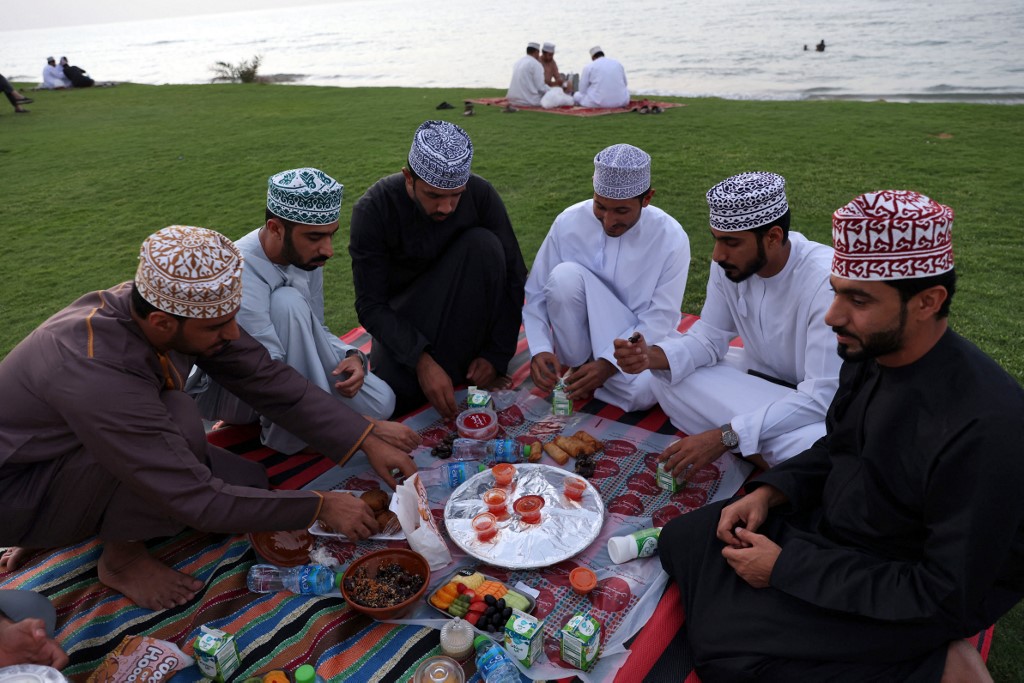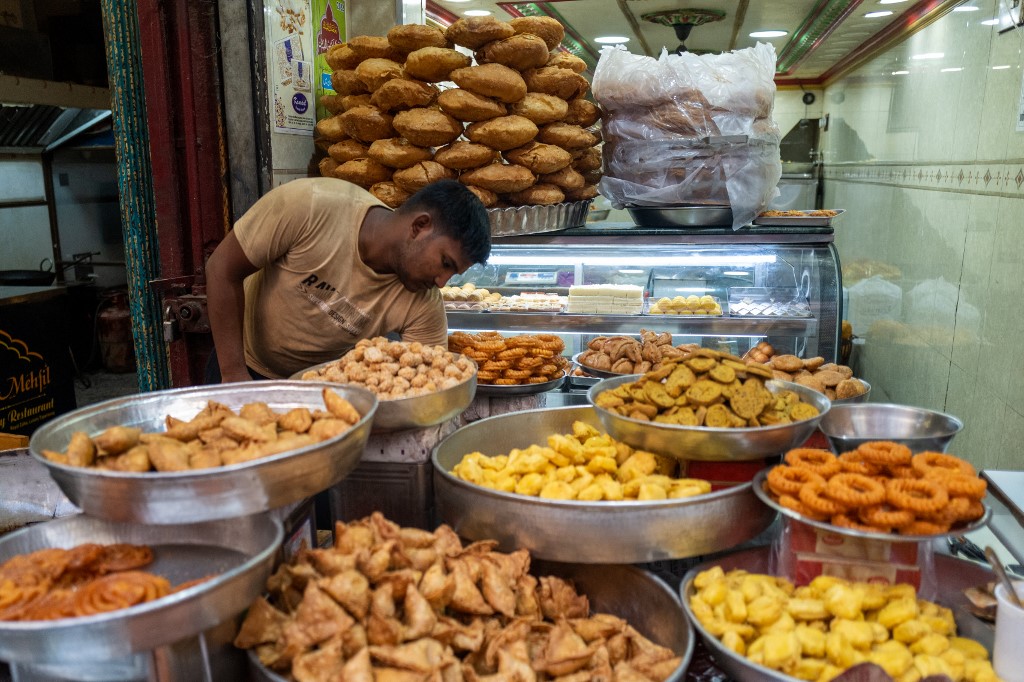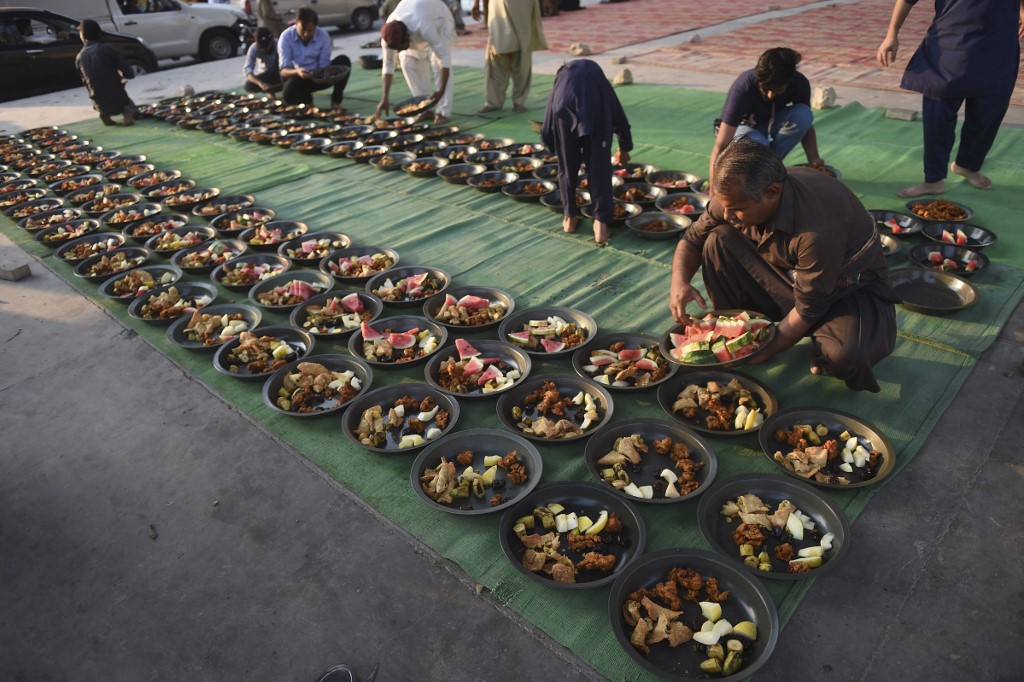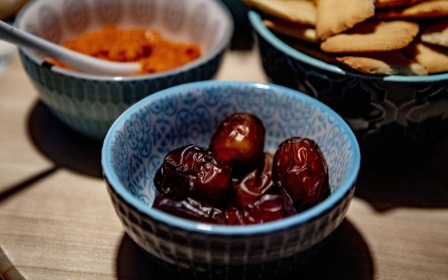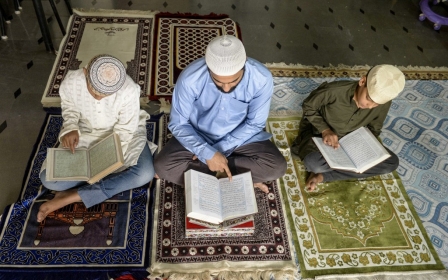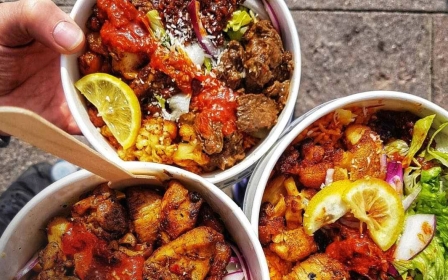Experiencing Ramadan with an eating disorder
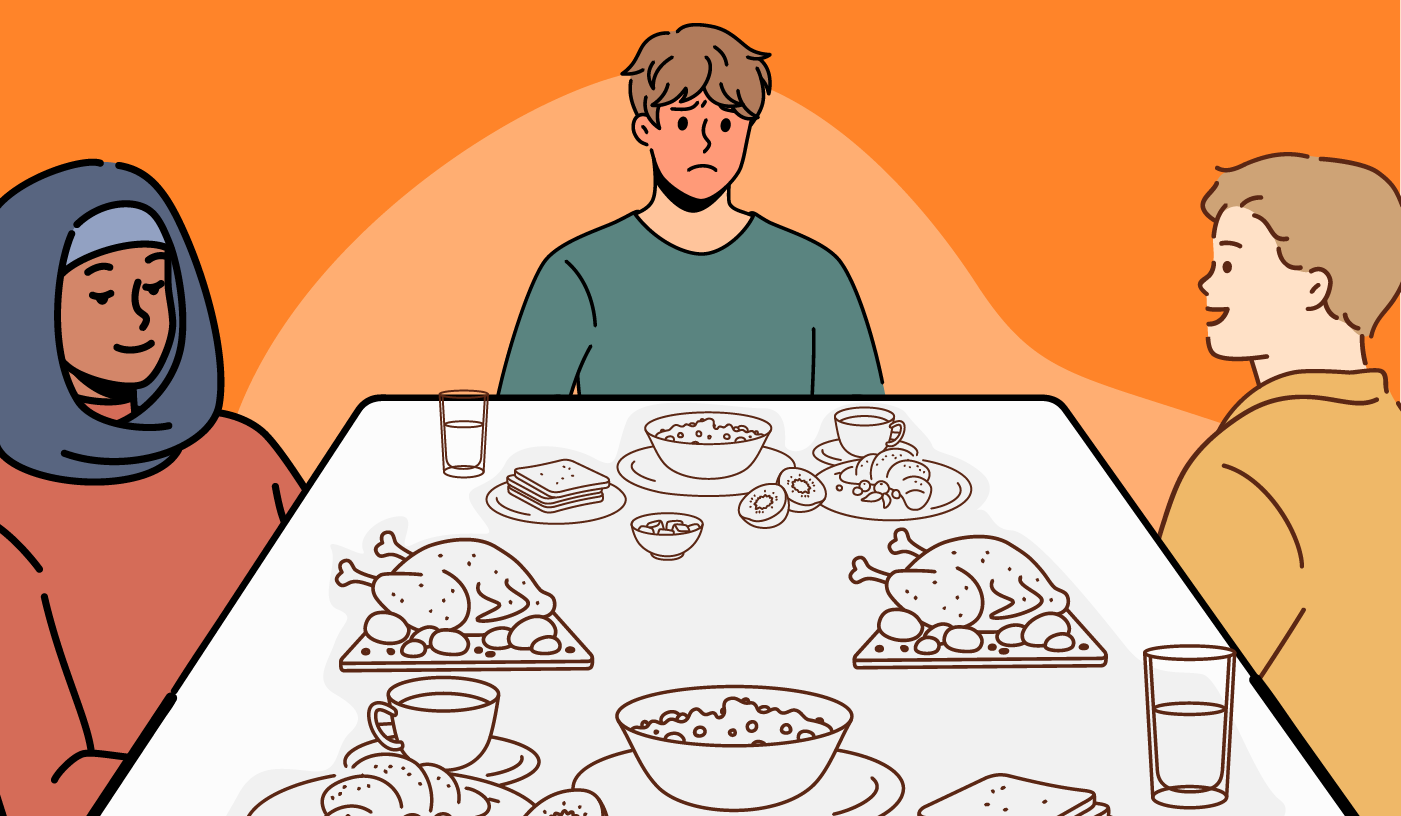
While one of the main features of Ramadan is fasting from all food and drink from just before dawn until sunset, a lot of emphasis is still placed on meals - the abstinence from them, to their preparation and their eventual consumption.
Despite the sacred month being important for its religious significance, it's also a period for families and friends to come together, reconnect, and eat iftar, the meal which breaks the fast, together.
Studies have shown that Ramadan has many health benefits, and is a good way of boosting health and wellbeing.
For many however, the month comes with the uphill battle of avoiding an onslaught of questions and comments, from “it looks like you didn’t like the food”, to “you still haven’t tried everything” and a common one -“why aren’t you fasting?”
For those suffering from eating disorders, the holy month can be hard to navigate, particularly as it can be seen as a taboo topic across the Arab region.
Eating disorders, which are considered a mental health condition that governs a person’s relationship with food, often make an individual hyper-aware of their weight and shape, and push them into making sudden changes to their diet. This can range from eating too little to eating too much.
“People aren't aware that it is a serious mental health condition that takes control of you. It is more than just wanting to be thin. It is so deep-rooted and people fail to understand that,” London-based mental health campaigner Habiba Khanom told Middle East Eye.
A 2020 study found that, as a whole, approximately 40 percent of the Arab population is on a diet, including adults and adolescents of both genders, and that Saudis appeared to be most at risk of disturbed eating behaviour.
Ramadan and culture of food
For many Muslims, Ramadan is the one time of year that they and their families' schedules align, because of the time in which they break their fast for iftar, and the time of suhoor, the pre-dawn meal.
The Ramadan experience therefore can often centre heavily on these shared meals. For those who observe Ramadan alone, breaking the fast can be an isolating experience.
“One of the main reasons - apart from the fasting - why Ramadan can be difficult for those with an eating disorder is that, ironically, the month becomes more about food,” Khanom told MEE, adding that “for some families, it can be the only time of the year where everyone eats together.”
According to Khanom, the culture of generosity that surrounds the month of Ramadan can be a conflicting time for people who suffer from eating disorders.
'Even with all the holiness and all the nice countdowns, Ramadan can be the worst place and time for someone with an eating disorder'
- Zara Miah, student
Ramadan, which is dubbed the month of giving, encourages followers of the faith to be generous. This takes form in giving charity, and sharing copious amounts of food with friends and the local community.
According to Khanom, this culture of food can make people with eating disorders feel like they are being watched, and the enthusiastic offers to pile food on your plate can be a challenging time.
Zara Miah, 23, a London-based student from Bangladesh, says the experience of Ramadan can be tainted for those with a testing relationship with food.
“Even with all the holiness and all the nice countdowns, Ramadan can be the worst place and time for someone with an eating disorder,” she told Middle East Eye.
“Especially for someone with a binge-eating disorder, or bulimia. Ramadan literally mimics that, essentially starving yourself for that amount of hours in the day, then eventually you eat and purge,” she added.
Taboo topic
One aspect that makes the month of Ramadan even more difficult for those suffering from food disorders is the lack of open conversation around the topic.
Yasmeen Alhajj, a health activist and nutrition student from New York, told Middle East Eye that many of the triggers and issues related to disordered eating stem from prejudice and "fatphobia".
“There’s a lot of value placed on image both for men and women in our culture, but, particularly for women there are specifications: you have to be thin and curvy and you have to have hips. These are some of the qualifications to be considered a good woman,” she said.
According to Alhajj and other health experts, these attitudes towards food and body image can have detrimental impacts on an individual, which are further reinforced when people do not have open discussions about them.
Diet culture and ‘healthism’
Health experts believe that diet culture has also over the years contributed to the detrimental impact felt by those suffering from eating disorders.
Alhajj states that a unique cultural clash has emerged over time, where the rise of the "healthism" movement has vilified certain foods which are often found in Middle Eastern cuisines.
“An individual struggling with an eating disorder can develop somewhat of a hatred towards their cuisine and culture, with the perception that these familiar foods may have played a role in them developing their condition, potentially forcing them to disconnect from parts of their identity.”
This is particularly true in Middle Eastern foods, a cuisine laden with meats, carbs and oils.
Alhajj, who has suffered from an eating disorder herself, says that the constant messages of diet culture which are prevalent in society, as well as certain food groups being deemed as bad, can lead to a difficult time for those who don't have a support network around them, or if they are trying to recover from a dietary disorder.
For Muslims who observe Ramadan alone while battling with mental health issues or eating disorders, the month can be one of the most testing and challenging times of the year.
Fasting with an eating disorder
As the month of Ramadan is considered to be one of the holiest in the Islamic calendar, for those who struggle with disordered eating, or who are unable to fast, the month can bring feelings of guilt.
Dr Omara Naseem, a UK-based eating disorder specialist and psychologist, uses her Instagram account to educate people and answer key questions about eating disorders during the holy month.
In a live video posted online, Dr Naseem stated that in order for someone to fast, an individual must be healthy enough to do so, and that anyone suffering from issues related to disordered eating should consult a clinician who can help them determine if they are able to fast.
Dr Naseem also encourages people to have conversations around disordered eating with their family members in an effort to help them understand the impact on them and remove any shame or cultural stigma around not fasting.
According to Islamic teachings, a number of exemptions from fasting are made for worshippers. This includes women who are menstruating, pregnant or breastfeeding, and those who are ill or travelling.
'It’s not just a month of fasting, it’s also the month of spiritual reflection, giving up bad habits and forming new ones'
- Dr Omara Naseem, eating disorder specialist
Many Islamic scholars suggest that those who are unable to fast engage in other types of spiritual worship during the holy month, including giving charity, reading the Quran, making supplications and volunteering.
Dr Naseem echoes this, and encourages anyone who can’t fast because they are triggered or hindered by their eating disorder to explore different forms of spirituality.
“It’s not just a month of fasting, it’s also the month of spiritual reflection, giving up bad habits and forming new ones. Any small thing one can do is good, giving charity and fidya [a religious donation given when a fast is broken] is an option, helping to feed someone else less fortunate,” she added.
For those who find fasting triggering or overwhelming, and struggle to explain to others why they can’t fulfil the religious duty, more emphasis is placed on other forms of worship.
Some will spend long hours of the night in prayer, while others try to compensate through charitable acts.
This article is available in French on Middle East Eye French edition.
Middle East Eye delivers independent and unrivalled coverage and analysis of the Middle East, North Africa and beyond. To learn more about republishing this content and the associated fees, please fill out this form. More about MEE can be found here.



